By: Caffeinated Gear Review Team
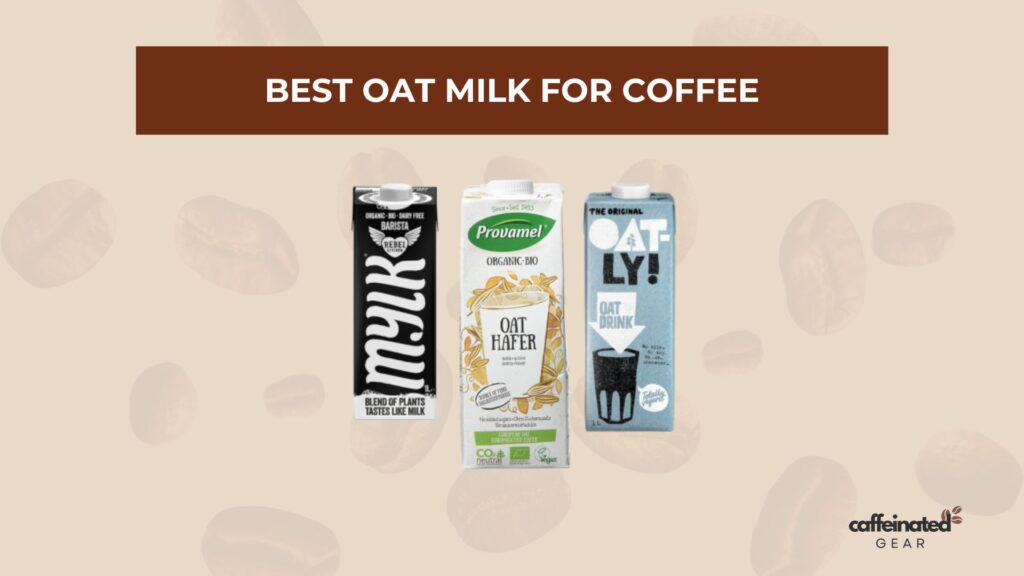
Finding the perfect oat milk for your daily coffee ritual isn’t just about grabbing any carton off the shelf.
After months of rigorous testing and hundreds of coffees made in our test kitchen, we’ve compiled what might be the most thorough analysis of oat milk for coffee you’ll find anywhere.
While many focus solely on barista editions, we’ve taken a broader approach by including both standard and barista versions in our testing.
Our initial testing phase began during the pandemic lockdown period, when our team conducted comprehensive video comparisons using five leading brands: Oatly Barista, Minor Figures, Oatly Original, Provamel Organic, and Alpro Organic.
Our initial latte art results weren’t perfect – oat milk requires different techniques compared to dairy milk. We’ve since discovered that letting the steamed oat milk rest briefly before pouring can significantly improve results.
Since our initial testing, the market has expanded considerably. New contenders have emerged, including Rebel Kitchen’s Barista Mylk. While marketed as a plant-based alternative rather than strictly oat milk, its primary ingredient is oat, earning it a place in our comparison.
Our perspective on oat milk has shifted dramatically since beginning this research. What started as a response to reader requests has evolved into a passionate exploration of dairy alternatives, driven by both personal health considerations and growing environmental awareness.
Recent research suggests potential links between dairy consumption and various health conditions, including neurological responses. This discovery prompted our team to delve deeper into dairy alternatives, particularly focusing on oat milk due to its superior taste profile in coffee applications.
Our decision to include standard oat milk alongside barista versions stems from a practical consideration: many coffee enthusiasts might be unnecessarily spending extra on barista editions when standard versions could serve their needs perfectly well.
The main distinction between barista and standard oat milk lies in fat content, typically achieved through added vegetable oils (usually rapeseed or sunflower). This higher fat content helps mimic the stretching and pouring characteristics of full-fat dairy milk.
For coffee drinkers who aren’t focused on latte art, the barista version’s benefits might be minimal. Some barista editions also contain acidity regulators – while these are approved food additives, they’re not essential if you’re simply looking for a delicious dairy alternative for your coffee.
Our initial scepticism about oat milk was quickly dispelled during testing. The difference between premium brands and basic supermarket versions is striking – particularly in their behaviour when steamed and their flavour profile in coffee.
The market has matured significantly since our first round of testing. New brands have emerged, existing products have been refined, and the overall quality of oat milk, especially those marketed for coffee use, has improved substantially
For detailed guidance on equipment selection, see our comprehensive guide:
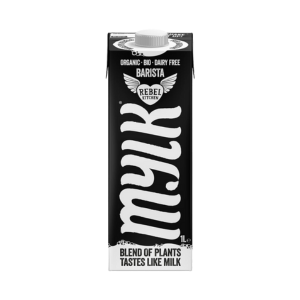
Our testing journey begins with the newest addition to the barista-grade plant milk family.
While we’re hesitant to crown any single product as the ultimate champion—since personal taste and dietary needs vary significantly—this innovative option deserves careful consideration.
Developed in collaboration with coffee industry pioneer James Hoffmann, this alternative milk has generated considerable buzz in professional circles.
As your team of coffee experts, we felt compelled to put it through its paces.
Though marketed as a “blend of plants,” oats lead the ingredient list after water, earning its place in our oat milk roundup.
The sophisticated formula includes coconut cream, sunflower oil, faba bean protein, and sunflower seed extract, creating a unique composition.
In our cold taste tests, we found distinct oat notes with a notably sweet profile.
The finish carries hints of raw oats, while subtle coconut undertones contribute to the overall sweetness without overwhelming the palate.
Despite the packaging’s claims about matching dairy milk’s taste profile, our team’s consensus differs.
The flavour profile aligns more closely with premium oat alternatives like Oatly Barista or Minor Figures rather than traditional dairy.
Our steaming trials revealed decent performance, with reasonable pouring characteristics and satisfactory texture.
However, its behaviour mirrors other oat milk products during the pouring process.
For comparison, we find Oatly Barista’s performance most closely matches whole dairy milk in steaming and pouring scenarios, consistently delivering expected latte art results when using our standard techniques.

This stands as one of our team’s top choices, though it faces fierce competition from Minor Figures.
Through extensive testing, we’ve achieved excellent microfoam consistency with Oatly Barista, producing a silky, velvety texture.
The oat flavour remains pleasantly subtle, maintaining harmony in the cup without dominating the coffee notes.
From a technical perspective, the fat and protein content explains its superior performance.
Protein facilitates stretch while fat enhances pour quality—Oatly Barista leads our tested range in both categories.
Comparing it to whole dairy milk, the numbers tell an interesting story: 3g fat per 100ml versus dairy’s 3.6g, and 1g protein versus dairy’s 3.4g.
While the protein content represents just one-third of dairy’s level, it tops our tested oat milk range.
In our cold taste assessments, Oatly Barista currently holds our top position.
It delivers remarkable creaminess without an overwhelming oat presence—you’ll notice its plant-based origins, but without the raw oat sharpness found in some alternatives.
Our extensive testing ranks this among the finest performers for steaming and pouring.
While we’re conducting additional side-by-side comparisons to definitively establish rankings (updates forthcoming), Oatly Barista currently achieves our best latte art results.
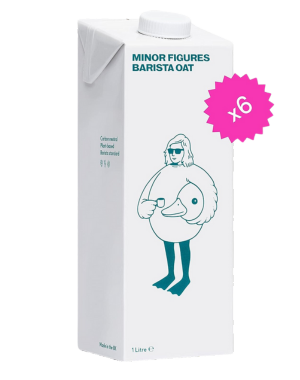
This product secures a very close second position in our rankings.
Our taste tests revealed slightly higher sweetness compared to Oatly Barista, reflected in its roughly 46% higher carbohydrate content (and 12.5% more natural sugars).
For those monitoring carbohydrate intake, this might influence your choice.
However, if you’re less carb-conscious and appreciate additional sweetness in your coffee, Minor Figures could be your ideal match.
A fascinating technical observation: despite containing approximately one-fifth of Oatly Barista’s protein and 30% less fat, we observed remarkably similar stretching and pouring characteristics.
This challenges conventional wisdom about protein and fat content being the sole determinants of performance.
The flavour profile closely parallels Oatly Barista, offering balanced oat notes and pleasant creaminess.
The key distinction lies in its slightly sweeter profile.
Performance matches the high standards set by leading alternatives.
Determining a definitive ranking requires additional comparative testing, as our current preference for Oatly Barista might stem from its closer similarity to dairy milk behaviour during steaming.
We’re continuing our testing to refine our steaming techniques across different oat milk varieties.
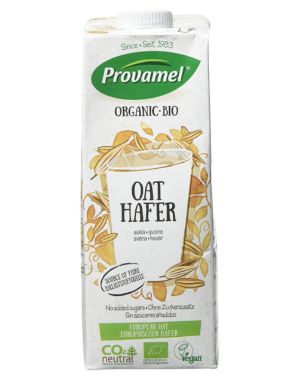
Performance matches the high standards set by leading alternatives.
Determining a definitive ranking requires additional comparative testing, as our current preference for Oatly Barista might stem from its closer similarity to dairy milk behaviour during steaming.
We’re continuing our testing to refine our steaming techniques across different oat milk varieties.
The milk delivers a smooth, creamy experience without overwhelming oat flavours. Its balanced sweetness makes it versatile for various coffee styles.
Despite not being marketed as a barista variant, we found its steaming capabilities impressive. While it lacks some pour control compared to specialist barista versions, it performs admirably for home use.
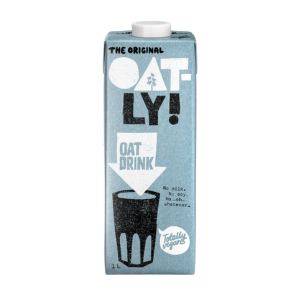
As coffee professionals, we appreciate Oatly Original for its widespread availability and competitive pricing. It’s become a pantry staple in many coffee shops for good reason.
The flavour profile closely mirrors Oatly’s Barista edition, though with slightly less creaminess due to its modified rapeseed oil content. It maintains an excellent balance between oat flavour and natural sweetness.
Our steam tests showed remarkable similarity to the Barista version, with one key difference: pour control diminishes slightly towards the end. We discovered letting the steamed milk rest for 20-30 seconds improves pouring precision.
In our extensive testing, Alpro’s Professional variant displayed unique characteristics. While its texturing and pouring matched competitors, we found its distinct oat profile created a yoghurt-like tanginess in coffee drinks.
Our temperature experiments revealed that steaming at slightly lower temperatures mellowed this sharpness, suggesting the intense oat flavour reacts differently to heat.
While Alpro and Provamel share identical nutritional profiles, suggesting similar formulations, our taste tests revealed noticeably different flavour characteristics.
© 2025 Caffeinated Gear.